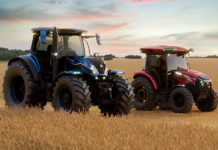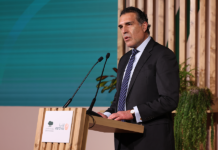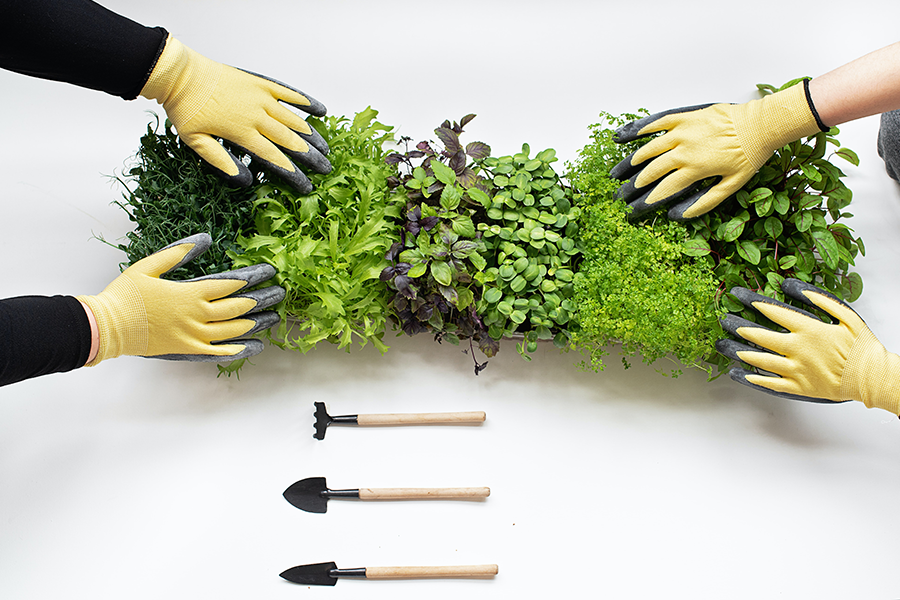
Many people in the U.K are striving to “go local”, but what does this mean? Found in Tavistock on the edge of Dartmoor National Park in the U.K, two enterprises, Ramsham Farm and Tavy Fridge, are driven to empower local people by giving them the tools to work together to resolve issues of common concern. Both are prioritizing environmental responsibility while helping people to thrive and reconnect with their communities.
On Ramsham Farm the river Tavy runs through a series of ancient water meadows. When put up for sale a group of seven mostly local buyers clubbed together with the common goal of offering ways for people to get involved in saving, preserving, and energizing the land for the benefit of local people and wildlife. Director of Ramsham Farm, Colin Trier, says their main motivations are enhancing the ecology of the valley and developing social enterprises to provide income opportunities for land-based activities. Sustainable businesses such as cider making, poly tunnel food production, bee-keeping, cultural events, eco-camping and retreats are all planned for the future.
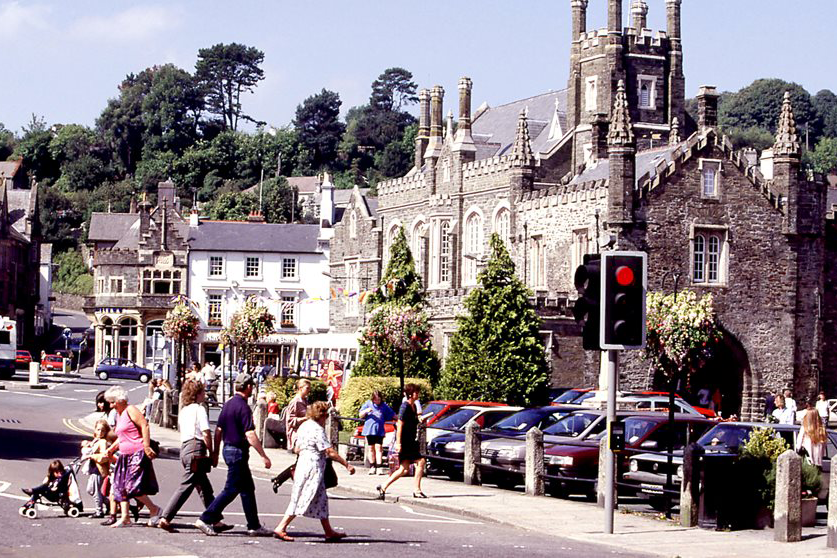
When asked what makes this 25-acre site so ecologically special Trier says ” it’s a steep sided, narrow valley and that means it’s never been of much interest in agriculture- at least the sides of the valley haven’t, they’re too steep. There’s no road through it and also there are no residences. This means it’s been unspoiled. There are no cars with headlights, people bustling around, or tractors. These all disturb the wildlife.” He adds, “we’ve got 11 species of bats and bats particularly don’t like the lights from cars and houses. This valley, at the moment, is ideal for them and we’d like to keep it that way or at least understand the ecology of bats enough so that we can do our best to preserve what is already here and maybe even improve it. The same applies to most of the wildlife in the area.” Trier also notes that they have a problem with pests- “Pheasants are an invasive species which were quite irrationally allowed to be released into the countryside. There are so many of them that they are taking the food source out of the mouths of all the native breeds and species…. it’s a disaster.”
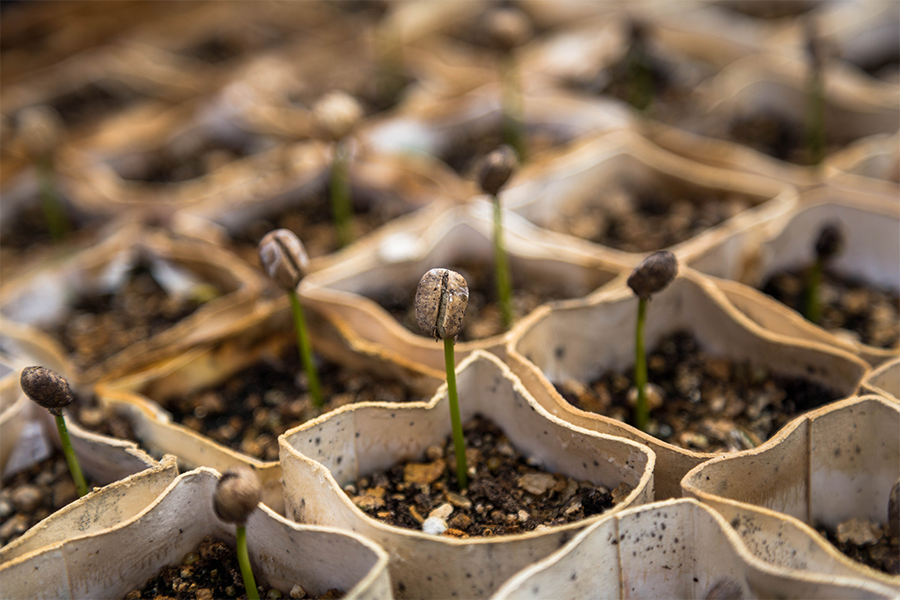
At Ramsham, they are, in part, trying to create a nature reserve as well as a community supported agricultural initiative. They know what they have is special as it’s been untouched and undisturbed for so long. Colin says “it’s how things used to be in many more parts of the country.” He says the project will be sustainable “if the outcome being produced is low-carbon in its impact and if it’s useful locally rather than globally.”
Sam Larkham, a volunteer at the farm and a teacher at a nearby independent school explained how he is involved with both a sustainability group and a market garden group at his workplace. He says “a lot of the pupils at the school are boarders living on site and they don’t get to work with the local community as much as they could. This is an opportunity for them to see what’s going on close to home and learn about ways in which local businesses and local groups are helping to tackle issues that face us all, such as climate change.” With specific reference to young people the project hopes to provide facilities for schools and individuals to visit the site and to observe nature by day and at night from a safe vantage point.

Tavy Fridge is a small non-profit making enterprise also based in Tavistock. It was set up to make use of perfectly good surplus food from local businesses. One thousand pounds of funding for the project came from Live West Housing Association and helped towards the purchase of a large fridge and stall accessories. The service is situated in the lobby of Tavistock Library where fruit and vegetables and bread can be obtained for free. The initiative boasts a team of 35 volunteers in total. Some are drivers who go out at about 9:00 p.m. and go to local supermarkets such as the Co-op, Tesco, and Lidl. They also visit a large local fruit and vegetable wholesaler who they collect from 3 times a week. The produce may be just past its best but certainly good enough to eat. Denise Gatley, one of the altruistic coordinators of the service, says “about 40 people a day are benefiting from the food which would have all gone to landfill. Some local gardeners have also donated produce from their own plots.”
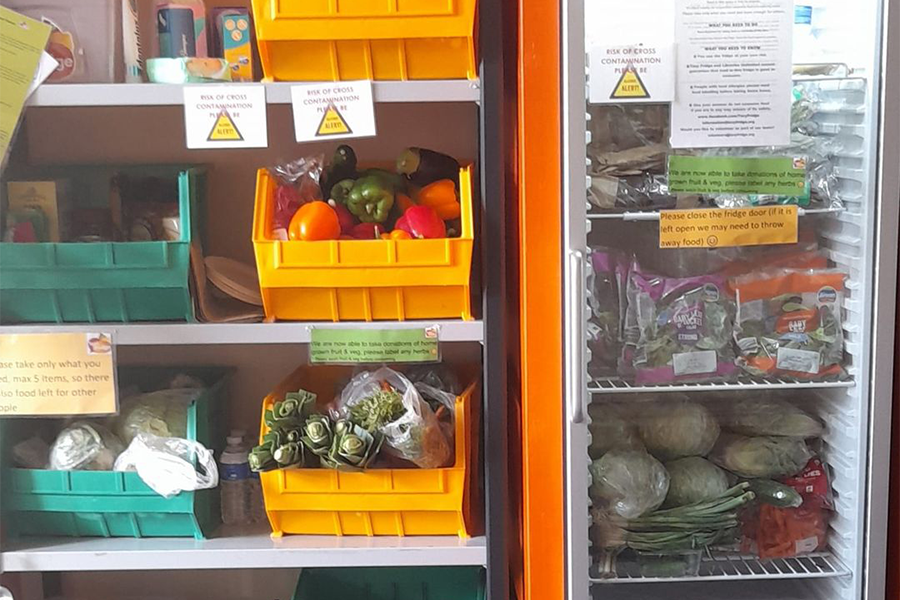
Evident in both these projects is the ultimate goal of helping to make stronger communities and a more sustainable environment. Connecting people together and connecting people to their environment is superseding the trend of reliance on multinationals and large chains.
Whether turning a profit or not, local initiatives improving quality of life are a keystone in the road to sustainability. Ultimately, “who we are” is not a term of the collective but of the individual. In the words of British punk rockers, The Levellers ….”there’s only one way of life and that’s your own.”![]()

The phrase “making the world a better place” has become something of a green washing platitude these days. Of course, many business innovations lead to new breakthroughs that foster positive change. However, most modern tech giants are more concerned with their bottom line, while claiming to work for the common good.
Fortunately, there are quite a lot of start-ups that actually succeed in making the world a better and safer place. In this Buzz series, D.B.G (Buzz writer Daniel Barnaby Goddard) presents to you purpose driven entrepreneurs from various industries around the world that have the right idea when it comes to tackling social, economic, and environmental issues.




